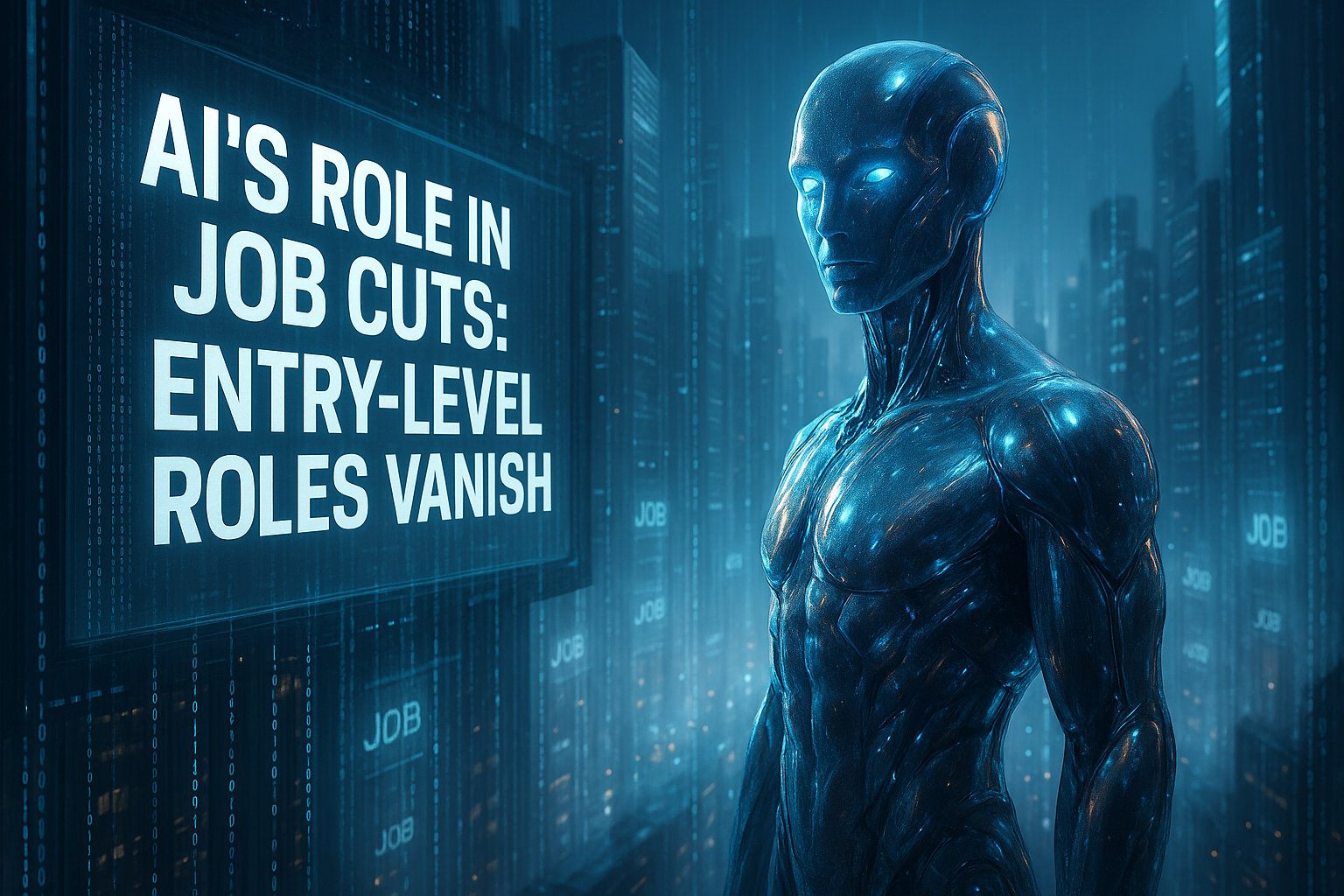
AI cuts begin at the bottom: Entry-level jobs disappear in the age of automation
# The Invisible Shift: How AI is Reshaping Entry-Level Jobs
### The Rising Tide of Automation
“There are signs that entry-level jobs are being replaced by artificial intelligence at an accelerating pace,” warns Oxford Economics. This era of rapid technological advancement is transforming not just the work landscape but also the very definition of work itself. While the advent of AI promises incredible efficiency and cost reduction, it poses a serious question: At what cost to the human workforce?
The hint of this transformation emerged in late April when Luis von Ahn, founder and CEO of Duolingo, announced a pivotal shift within his company. The “AI-first” language-learning app decided to eliminate certain contract worker roles, tasks that could now be efficiently handled by AI. This move paints a stark picture of a broader pattern emerging across industries.
### Personal Insights from the Digital Frontlines
In conversations with various professionals across sectors, one finds a mix of optimism and apprehension. Companies like Shopify, Salesforce, and even media outlets like Business Insider are not just integrating AI but are building around it. In March, Shopify mandated that managers justify new hires by proving that AI cannot accomplish the tasks required. Meanwhile, Salesforce’s pivot led to a hiring slowdown, reallocating hundreds of customer service employees to different roles.
These are not just policies; they are strategies that showcase a significant shift in how organizations value human roles. “Over 70% of Business Insider employees are already using Enterprise ChatGPT regularly (our goal is 100%),” wrote CEO Barbara Peng. Thus, the narrative is not just about efficiency but about redefining roles and responsibilities—often at the junior level.
The implications are stark. For those at entry-level positions, especially roles related to data processing and analysis, the outlook is becoming increasingly precarious. Zanele Munyikwa, an economist at Revelio Labs, found in her research that job listings for roles that AI can perform have declined by 19% over three years. This reduction exemplifies a broader reluctance to hire for positions that AI could potentially replace.
**Quote:** “The technology is not yet foolproof,” as seen in companies like Klarna, which had to backtrack after customer dissatisfaction arose from AI replacements.
### Learning from the Digital Transformation
While AI’s encroachment into the workforce can seem daunting, it holds critical learning moments for individuals and organizations alike.
– **Adaptability**: Workers, particularly those entering the job market, must cultivate adaptability and a willingness to learn. Experience in diverse technologies and interdisciplinary knowledge will likely become invaluable.
– **Lifelong Learning**: As AI assumes more routine tasks, there will be a premium on creative, strategic, and emotional intelligence. Workers should seek opportunities to upskill continually, exploring new domains that AI might be slow to penetrate.
– **Innovation in Education**: Institutions must rethink educational paradigms to prepare students for a world where traditional roles are evolving. Emphasis should be placed on skills that complement AI capabilities.
While some fear a dystopian future where AI renders human roles obsolete, the current landscape offers opportunities for growth and reinvention. The key lies in leveraging these technologies to augment human potential rather than replace it.
### The Emotional Core: Asking the Right Questions
Understanding this landscape’s emotional impact is crucial. After all, numbers and statistics often fail to capture the human stories behind these shifts. We should ask ourselves: How can we equip future generations to thrive in a world where AI handles many traditional roles?
The narrative isn’t just about jobs lost but about new forms of work yet to be created. Are industries ready to invest in nurturing skills that AI cannot easily replicate? There’s an urgent need for a dialogue about what it means to be human in the workplace and how we ensure that technology serves us, rather than the other way around.
### Conclusion
The AI revolution is not a distant future scenario but a present-day reality reshaping entire industries at unparalleled speed. Its impact is most felt at the entry-level, a vital stepping stone for many careers. The challenge and opportunity lie in how we, as a society, navigate this transformation. Are we prepared to redefine the landscape of work to ensure inclusion, growth, and mutual prosperity?
As we grapple with these questions, the fundamental question remains: In a rapidly evolving world where AI and humans work side by side, how do we define meaningful work, and what role will you choose to play in shaping that future?


